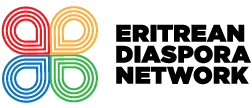This month’s professional spotlight is Nami Russom, Human Resources Business Partner at Google. Read on to learn about Nami’s successful career in Human Resources and her passion for people.
Could you briefly explain the Human Resources Business Partner role?
At the core of my role, I help executives think about how to align people (arguably, the most important asset for a company) to business goals. Every day is different so I could be exploring organizational design, partnering with staffing to hire for headcount grants, evaluating leadership team effectiveness or the more reactive stuff like employee or personnel issues. The absolute favorite part of my job is definitely executive coaching. I love helping leaders think about who they are today, architecting the type of leader they aspire to be, identifying the gaps and working on a plan to help them move the needle forward.
How did you come to decide that this was the right career path for you?
In college, I was a finance major and the dean of the department had made a comment to me at one point that “HR is where careers go to die” and I literally could not shake the mental model I built around the profession. When I started my career in consulting, I realized that so much of what I enjoyed in that space was being a professional problem solver, learning more about various clients & their businesses, inspiring project teams around goals, measuring outcomes, etc. – leading. When I decided to leave and explore the nonprofit world, I decided to move closer to how I enjoyed spending my time – what brought me energy, what set me on fire, what did I want to learn more about, what skillsets did I want to develop, etc. I moved away from searching for a job title and started reading more about the responsibilities to make sure I was spending more of my day-to-day on the stuff that I enjoyed and less on the stuff that depleted my energy. And what I can say about that is that every new role has done just that for me.
What skills have you found vital for your job, and how did you learn them?
- Learning aptitude. My mom always said I was the most curious kid and it’s so true, I ask the question “why?” incessantly. I enjoy going deep on topics and feeding my desire to learn new things. Now this comes naturally to me but even if it doesn’t for you, when you’re passionate about things, find the discipline to really learn the space and demonstrate some understanding. I can coach skill, I can’t coach will.
- Learning and continuously improving. We’ve all worked with someone who was not receptive to feedback (I know you can visualize them now in your head). I used to take feedback to heart in a way that held me back from really hearing the feedback and getting over my own ego and fear of failure. I wholeheartedly believe feedback is a gift and anyone that has taken the time to share it with me, I dial up my curiosity to ask questions only (no statements), process for myself alone and then decide what I want to do with it going forward. And it can really be that simple! I think feedback always feels like an event when you get it too infrequently or create a whole narrative about it in your head. And part of what has helped me is that I make it easier for people to give me feedback e.g. I ask more naturally in a quick email or ping after a presentation, I hold space in my check-ins with my manager for a one up, one down.
- Communications. This is broad intentionally because I mean it to be – written, verbal, knowing your audience to know the right level of information to share, avoiding filler language (uh, um, so, like), clear and succinct, and my favorite – reading a room. Goodness, I meet the most talented people that are just not properly conveying what they have to share or their own story. This takes time and practice, lots of practice but nailing this will change the game.
Can you pinpoint some of the easily avoidable mistakes applicants make in the application and interview process?
This is a simple one for me – not answering the question posed, talking too much (or too little), reading a script (puh-LEASE do not do this), or my personal pet peeve – not asking any or the right questions to your interviewers.
What are three tips you would offer to anyone looking for a job right now from an HR lens?
- Do your homework on the organization or company. Easiest way to do this is to read their annual report.
- Leverage your network. There are so many people that would be willing to help support you, just ask. The worst they can do is say no. The best they can do is say yes!
- Exude confidence! You are talented, worthy and valued. Find the right place and role that will allow you to stretch and grow. The right role won’t miss you.
What are the most rewarding and challenging aspects of your career?
The most rewarding thing is seeing the growth of my executives, their leadership teams and business. My only goal is that they are 1% better than when I first started working with them. The most challenging is that it’s emotionally taxing. I’m an introvert and too much people intake is depleting so I really have to find ways to unplug and reset to get back in the game!
How do you stay motivated and goal-oriented?
I go on a passport required birthday trip annually and my only intention is to reflect on my accomplishments and show myself gratitude. I really have to practice this because giving myself grace doesn’t come naturally to me. And when I’m back from this trip, I pick a theme for the next year and then I set monthly goals around every aspect of my life (health, finance, relationships, learning, career, fun!), just one goal for every area. I find that planning my time is the most important way I actually get stuff done and not waste it away. So every week, I look at the week ahead and add everything (literally everything) to my calendar so my brain doesn’t have to think about what’s next, my calendar reminds me and I simply execute. It’s the same concept Steve Jobs talks about when explaining why he wore a black turtleneck constantly – decision fatigue and minimizing the number of decisions we make in a day.
To date, what is your greatest professional accomplishment?
Multiply my impact – watching people I used to manage or mentor go off to ascend ladders in their respective fields/companies.
What’s one piece of advice you would give someone looking to transition into your line of work?
Make sure you like people. No…but seriously. You really have to enjoy the study of humans and human psychology to do people work (I dislike the terminology – HR, it’s so archaic).
What do you do for fun outside of all of your hard work and efforts toward building your career? Hobbies?
I love love travel and have found so much joy in solo traveling, it really feeds my soul – food and new cultures. I used to compete in bodybuilding competitions (this often surprises people!) and have kept a healthy rhythm of personal training and my new favorite F45. I like to check out one new thing every month e.g a museum, activity, restaurant. And most of all, spending time with my friends and family and being the favorite auntie to a wealth of nieces and nephews!


Congratulations you have come this far with a lot of work, I know the rest is not going to be easier either but look at the prize of success which you are capable. Good luck go for it May God lead you the way. We are proud of what our kids and their achievements.
Congratulations Nami job well done.
Nami it is not only by educational knowledge but a natural gift that she have passionate enteraction with people is a good quality and a golden attitude her priceless hardworking must be always egknolaged she put your heart to do things without reservation that is nami for you I am proudly say keep up with the good work
Here is a talent. She clearly knew her goals at the start. Isn’t it wonderful to hear those amazing words from a young black lady? What a success and what an achievement!
I am proud of you Nami congratulations !! 🎉🎈🎉❤️